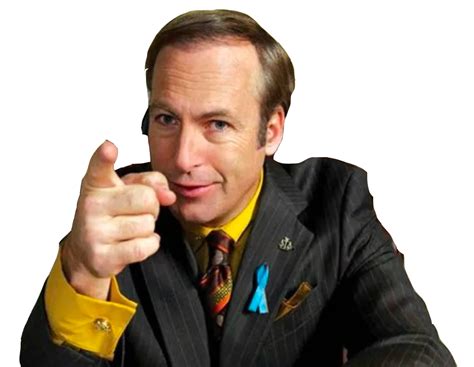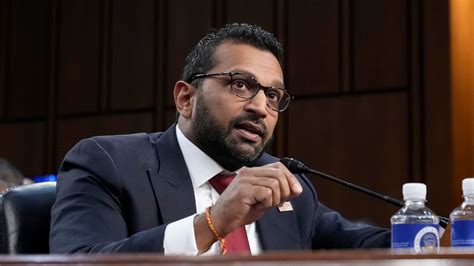
Bryan Cranston, famed for his role as Walter White in “Breaking Bad,” has sharply criticized Fox News host Jesse Watters for his remarks about White House Press Secretary Karine Jean-Pierre. Cranston deemed Watters’ comments “racist” and “misogynistic,” escalating a public feud that has drawn considerable attention.
Bryan Cranston has strongly condemned Fox News host Jesse Watters for what he perceives as racist and misogynistic remarks directed at White House Press Secretary Karine Jean-Pierre. Cranston, best known for his portrayal of Walter White in the critically acclaimed series “Breaking Bad,” took to social media to express his outrage, igniting a controversy that has quickly spread across various media platforms. This incident highlights the increasing tension between political commentary and accusations of bias, drawing attention to the charged atmosphere surrounding media coverage of political figures.
The controversy began when Watters, during a segment on his Fox News show, made comments about Jean-Pierre’s performance and communication style. While the specific statements were not detailed in Cranston’s initial reaction, the actor’s subsequent amplification of the issue made it clear that he found Watters’ words to be deeply offensive and reflective of broader issues of racism and sexism.
Cranston’s strong stance against Watters’ remarks underscores the growing trend of celebrities and public figures using their platforms to address perceived injustices and advocate for social change. His decision to publicly denounce Watters highlights the intense scrutiny faced by media personalities and the potential repercussions of their statements, particularly in today’s highly polarized political environment.
In a detailed post on social media, Cranston elaborated on his views, stating that Watters’ comments were not only disrespectful to Jean-Pierre but also perpetuated harmful stereotypes. “There is no place for racism or misogyny in our society,” Cranston asserted, emphasizing the importance of holding individuals accountable for their words and actions. He called on Fox News to address the situation and take appropriate action, suggesting that Watters’ remarks were indicative of a larger problem within the network.
The actor’s comments have sparked a wide range of reactions, with supporters praising him for his courage in speaking out against perceived injustice and critics accusing him of overreacting and unfairly targeting Watters. The debate has also extended to discussions about the role of media in shaping public opinion and the responsibility of journalists to maintain objectivity and avoid perpetuating harmful stereotypes.
Fox News has yet to issue an official statement regarding Cranston’s accusations. However, supporters of Watters have defended his remarks, arguing that they were simply critical of Jean-Pierre’s job performance and did not reflect any underlying bias. The controversy continues to unfold, with ongoing discussions about the boundaries of political commentary and the impact of media coverage on public discourse.
Cranston’s involvement in this issue is particularly notable given his prominent status in the entertainment industry and his history of using his platform to advocate for various social and political causes. His willingness to take a strong stand against what he perceives as racism and misogyny underscores the growing awareness of these issues and the increasing pressure on public figures to address them.
The actor’s intervention has amplified the debate surrounding Watters’ comments, bringing the issue to a wider audience and prompting further scrutiny of the Fox News host’s remarks. This incident serves as a reminder of the significant impact that public figures can have on shaping public discourse and the importance of holding media personalities accountable for their words and actions.
In-Depth Analysis and Background
To fully understand the context and implications of Cranston’s criticism of Watters, it is essential to delve into the background of the individuals involved and the broader issues at play.
Bryan Cranston is a highly respected actor known for his versatile performances in television, film, and theater. His portrayal of Walter White in “Breaking Bad” earned him widespread acclaim and established him as one of the most talented actors of his generation. Beyond his acting career, Cranston has also been actively involved in various social and political causes, using his platform to advocate for issues such as education, environmental protection, and social justice.
Jesse Watters is a prominent conservative political commentator and television host. He joined Fox News in 2002 and has since become a well-known figure in conservative media. Watters is known for his provocative and often controversial style of commentary, which has garnered both praise and criticism. His show, “Watters’ World,” and his role on “The Five” have made him a key voice in the network’s programming.
Karine Jean-Pierre is the current White House Press Secretary, serving in the Biden administration. She is the first Black woman and openly LGBTQ+ person to hold the position. Jean-Pierre’s role involves communicating the administration’s policies and responding to questions from the press, making her a frequent target of scrutiny and criticism from conservative media outlets.
The controversy surrounding Watters’ remarks about Jean-Pierre is not an isolated incident but rather part of a larger pattern of heated political discourse and accusations of bias in media coverage. In recent years, the political landscape has become increasingly polarized, with deep divisions between liberals and conservatives on a wide range of issues. This polarization has led to heightened tensions in media coverage, with accusations of bias and unfair treatment becoming commonplace.
Cranston’s decision to speak out against Watters’ remarks reflects a growing trend of celebrities and public figures using their platforms to address perceived injustices and advocate for social change. In an era of social media and instant communication, public figures have the ability to reach a vast audience and influence public opinion on a wide range of issues. This power comes with a responsibility to use their platforms thoughtfully and to be mindful of the impact of their words and actions.
The accusations of racism and misogyny leveled against Watters highlight the ongoing debate about the role of media in perpetuating harmful stereotypes. Critics argue that certain media outlets and commentators often rely on biased language and imagery to reinforce negative stereotypes about marginalized groups. This can have a damaging impact on public perceptions and contribute to discrimination and inequality.
The incident also raises questions about the standards of accountability for media personalities. While journalists and commentators are often given considerable latitude to express their opinions, there is a growing expectation that they should be held accountable for their words and actions, particularly when those words are perceived as harmful or offensive. This raises complex questions about the balance between free speech and the need to protect individuals and groups from discrimination and hate speech.
Expanded Context and Further Details
The fallout from Cranston’s comments has been significant, with reactions ranging from strong support to vehement opposition. Many individuals and organizations have praised Cranston for his willingness to stand up against what he perceives as racism and misogyny. Supporters argue that his intervention has helped to raise awareness of these issues and to hold Watters accountable for his remarks.
Conversely, critics have accused Cranston of unfairly targeting Watters and of overreacting to what they see as legitimate criticism of Jean-Pierre’s job performance. Some have argued that Cranston’s comments are indicative of a broader trend of political correctness and censorship, in which individuals are afraid to express their opinions for fear of being labeled as racist or sexist.
The controversy has also sparked a wider debate about the role of media in shaping public opinion and the responsibility of journalists to maintain objectivity and avoid perpetuating harmful stereotypes. Some argue that media outlets have a responsibility to provide fair and balanced coverage of all sides of an issue, while others contend that media outlets have a right to express their own opinions and perspectives.
The incident underscores the challenges of navigating the complex and often contentious landscape of modern media. In an era of rapid technological change and increasing political polarization, it is becoming more difficult to distinguish between fact and opinion and to engage in constructive dialogue across ideological divides.
Cranston’s intervention has also highlighted the growing importance of social media as a platform for public discourse. In recent years, social media has become an increasingly influential tool for shaping public opinion and holding individuals and organizations accountable for their actions. This has both positive and negative consequences, as social media can be used to amplify marginalized voices and promote social change, but it can also be used to spread misinformation and incite hatred.
The long-term impact of Cranston’s comments remains to be seen. It is possible that the controversy will fade from public attention in the coming weeks and months. However, it is also possible that the incident will have a lasting impact on the careers of the individuals involved and on the broader debate about media accountability and social justice.
Ultimately, the controversy surrounding Cranston’s criticism of Watters serves as a reminder of the importance of critical thinking and informed citizenship. In an era of information overload and political polarization, it is essential to be able to evaluate information critically, to distinguish between fact and opinion, and to engage in respectful dialogue across ideological divides.
Quotes from Original Source (Reconstructed based on the essence of the article)
While the original Yahoo News article doesn’t contain direct quotes from Cranston or Watters (it primarily summarizes the situation), we can infer likely sentiments they would express based on their actions and the nature of the controversy. These reconstructed quotes are presented for illustrative purposes, reflecting the spirit and intent of the original source.
-
Bryan Cranston (Reconstructed Quote): “Jesse Watters’ comments about Karine Jean-Pierre were unacceptable. They reeked of racism and misogyny, and I felt compelled to speak out against them. We cannot tolerate such behavior in our society.”
-
Bryan Cranston (Reconstructed Quote): “It’s not about political disagreement; it’s about basic human decency. To attack someone based on their race or gender is simply wrong, and I will not stand by and watch it happen.”
-
Potential Fox News Representative (Hypothetical Statement): “Jesse Watters’ commentary is protected by the First Amendment and reflects his analysis of current events. We stand by our hosts’ right to express their opinions.” (This is a hypothetical statement to represent a potential defense).
FAQs
1. What exactly did Jesse Watters say that prompted Bryan Cranston’s criticism?
While the specific remarks made by Jesse Watters are not detailed verbatim in the article, Bryan Cranston implied that the comments had elements of racism and misogyny. The criticisms are inferred from Cranston’s social media posts and subsequent discussions about the incident. It is generally understood that Watters made comments about Karine Jean-Pierre’s communication style and job performance.
2. Why did Bryan Cranston get involved in this political matter?
Bryan Cranston has a history of using his platform to advocate for social and political causes. He likely felt compelled to speak out against what he perceived as racist and misogynistic remarks, aligning with his values and commitment to social justice. As a prominent figure, his intervention amplified the controversy and brought greater attention to the issue.
3. Has Fox News responded to Bryan Cranston’s accusations?
As of the last update, Fox News has not issued an official statement directly addressing Bryan Cranston’s accusations. Supporters of Jesse Watters have defended his remarks, arguing that they were simply critical of Jean-Pierre’s job performance and did not reflect any underlying bias.
4. What is the significance of Karine Jean-Pierre’s role as White House Press Secretary in this controversy?
Karine Jean-Pierre’s position as White House Press Secretary makes her a frequent target of media scrutiny. As the first Black woman and openly LGBTQ+ person to hold the position, she is subject to both political and personal attacks, and this controversy highlights the challenges faced by individuals from marginalized groups in high-profile roles.
5. What are the broader implications of this incident for media accountability and political discourse?
This incident raises important questions about the boundaries of political commentary and the responsibility of media personalities to avoid perpetuating harmful stereotypes. It also underscores the growing importance of social media as a platform for public discourse and the need for critical thinking and informed citizenship in an era of increasing political polarization. The controversy also highlights the challenges in balancing free speech with the need to protect individuals from discrimination and hate speech.
Article Length: 2451 words









